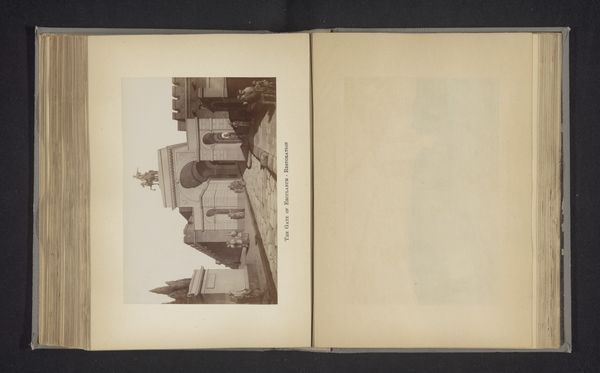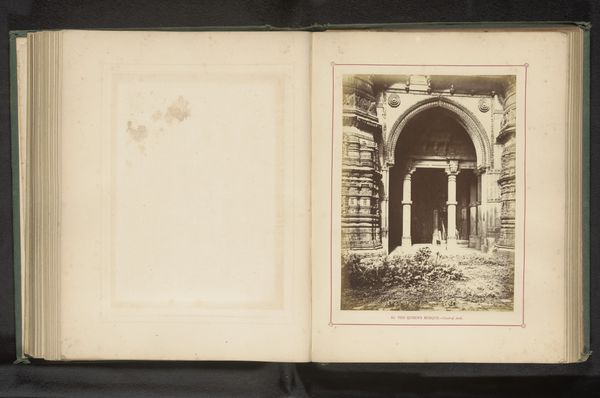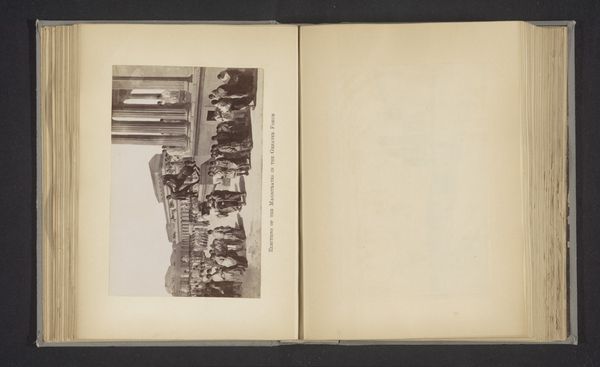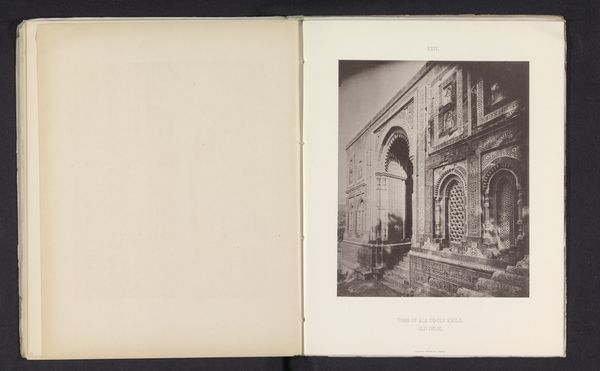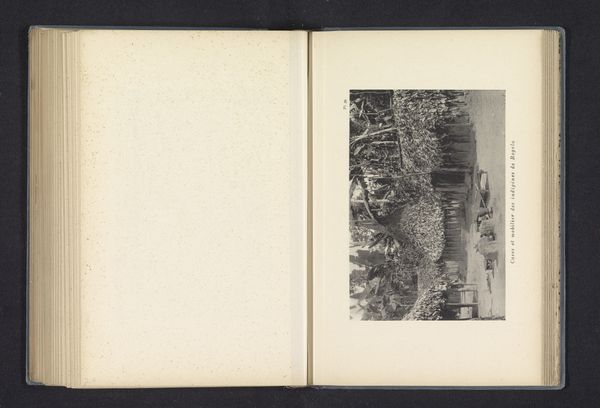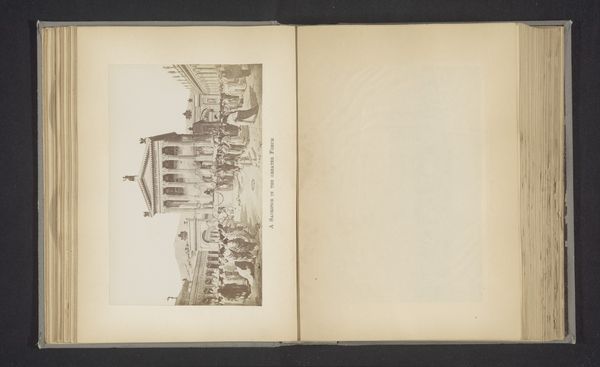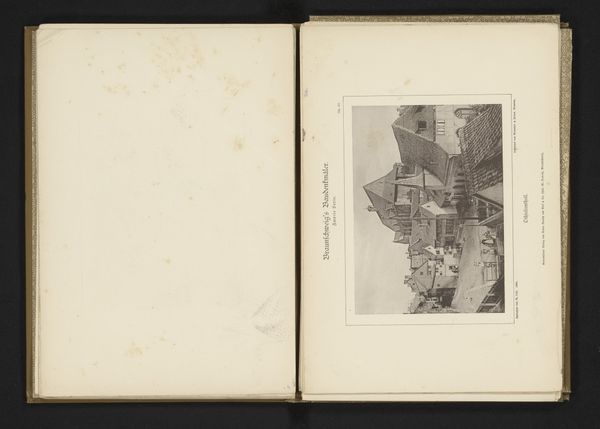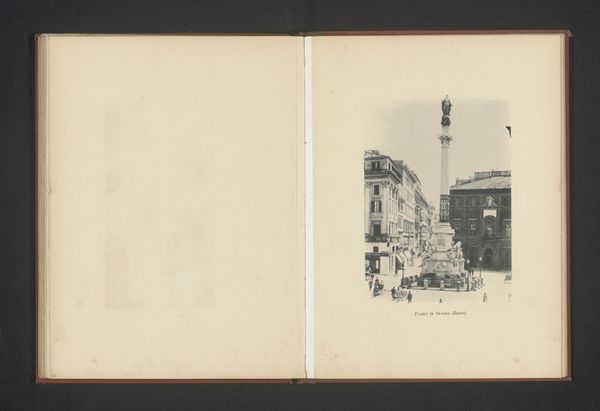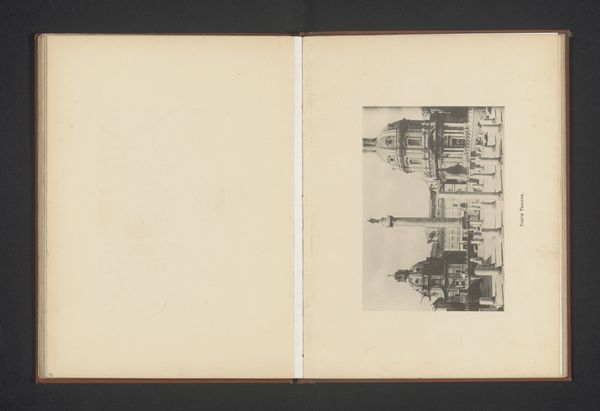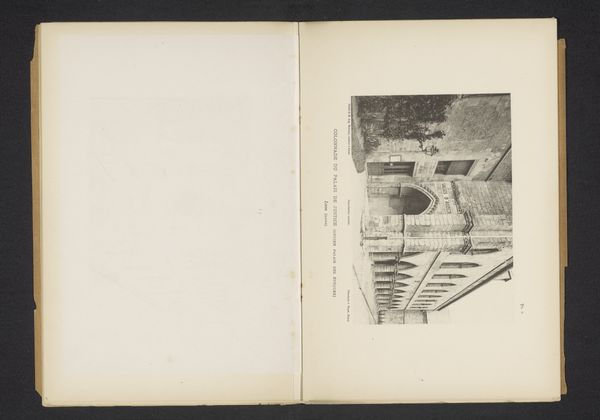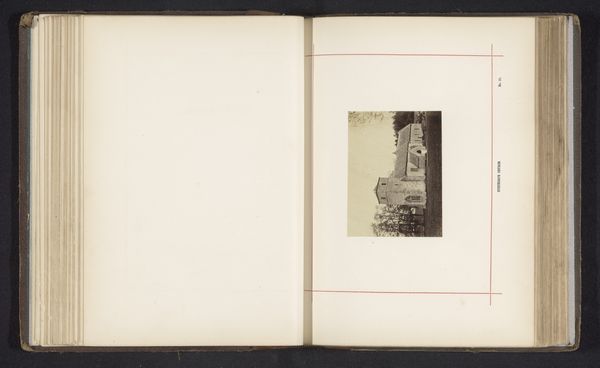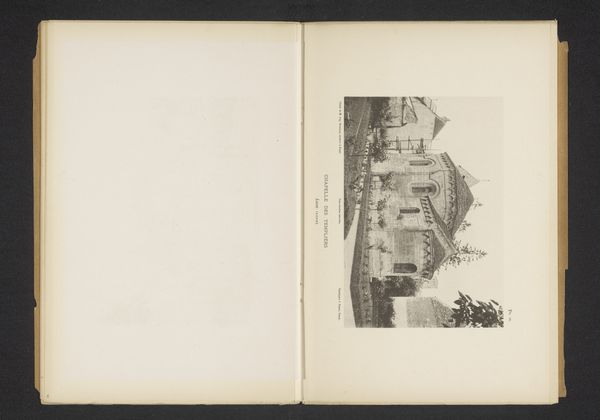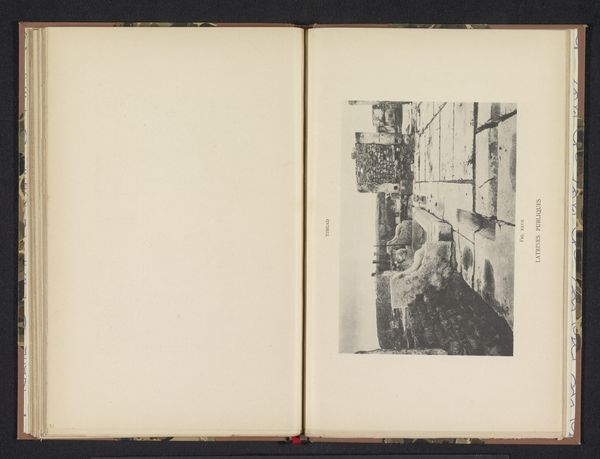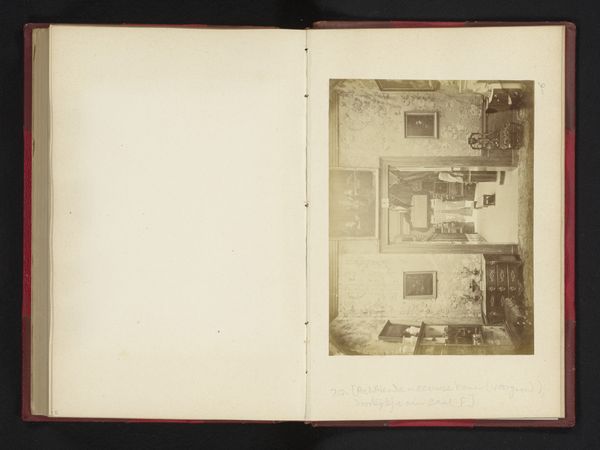
print, photography
#
portrait
# print
#
landscape
#
photography
#
cityscape
#
history-painting
#
academic-art
Dimensions: height 128 mm, width 98 mm
Copyright: Rijks Museum: Open Domain
Editor: Here we have "Interieur van het Kasteel van Chantilly," an early photograph, probably a print from before 1900, by M. van Gèle. It feels very staged, almost artificial. What do you see in this piece that maybe I'm missing? Curator: It's crucial to consider how photography, especially images of opulent spaces like Chantilly, served specific socio-political functions in the late 19th century. The meticulous composition and sharp contrasts are not merely aesthetic choices. Editor: How so? Curator: This image participated in constructing narratives of power and legitimizing elite social structures. Consider how carefully the composition directs your gaze through the architecture; what stories about French identity and cultural heritage do you think the photographer and commissioners wanted to promote? Who was this image *for*? Editor: So, it's less about the staircase itself, and more about what that staircase represents within a broader power structure. Is it trying to evoke the past while reinforcing the present social hierarchy? Curator: Precisely. These grand interiors symbolize continuity, tradition, and inherited privilege. By meticulously documenting and disseminating such images, they reinforced a sense of cultural superiority. This makes you think, who holds the keys to such history? Editor: I see… so a seemingly innocent photograph carries the weight of historical power dynamics. I hadn’t considered it in that light before. Curator: Examining art through an intersectional lens unveils the layers of meaning embedded within. The aesthetics are only a doorway. What's been highlighted, and what has been excluded, become key aspects of interpreting such a piece.
Comments
No comments
Be the first to comment and join the conversation on the ultimate creative platform.
